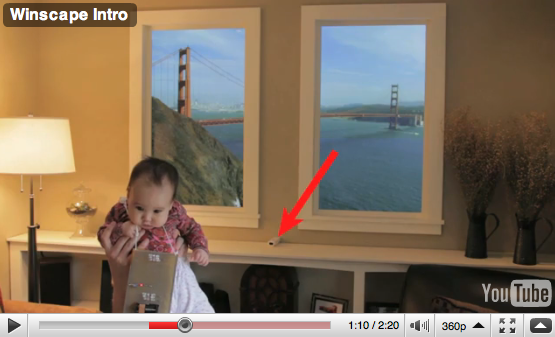Yesterday I found myself at the Apple Store. At last, a chance to try out an iPad. At last a chance to pass judgment.
Color me unimpressed.
I know, I know. Lots of people will say I don't "get it." That the iPad is revolutionary. That's it's the next big thing in computing. And that may all be true. But there's nothing the iPad offers, in it's present incarnation, that I need, or, frankly, even that I want. Don't get me wrong, I want to want an iPad. I really do. I'm as close to being an Apple fanboy as you can get (Hell, maybe I am one); I love new toys and gadgets; and I love all my Apple products — my MacBook Pro, my iPhone, they're among my favorite products ever.

But, after touching it and experiencing it for myself, the iPad just kinda leaves me cold.
Yes, the touch interface is undeniably cool and well-done. Yes, the hardware is gorgeous. But I can't help seeing the iPad as a hobbled MacBook on the one hand, and as a hobbled iPhone on the other. I can only see it in terms of what doesn't do, because there's nothing it does much better than anything I already have. I don't plan on using a tablet to consume ever more movies and TV; I get enough of that already, and it's disappointing enough as it is. And, frankly, the hype around the idea that surfing the web on the iPad with my hands is somehow the apex of the browsing experience is completely over the top. I did not find it particularly magical at all. The only thing the iPad offers is the promise of something great in the future, the idea that there's a simple computing paradigm for people who aren't particularly interested in technology for technology's sake.
Maybe I'm underwhelmed because I've already experienced the first-time rush of touch interaction three years ago when I bought my first iPhone. Maybe it's because I actually like computers and always have. Maybe the iPad, as I suspect, is just not intended for someone like me. This is probably the case.
That said, speaking from the point of view of someone like me — someone who likes computers and already has a laptop and a smartphone that work really well — who has now experienced the iPad firsthand, in the flesh, there is little I find compelling about the product. As a device that can't even be activated without a computer, and that is shackled in many of the same ways the iPod is (another product I never saw a need to buy), the iPad represents an interesting, yet in many ways still frustrating, vision of what computers could someday become. The touch interaction and simplicity are great and will someday be a boon to people who don't particularly enjoy using computers. But for those of us who do, the current iPad will likely prove disappointing until it is capable of much more than it currently is.
I'll say again, I think the main schism is between creativity and consumerism. Right now, the iPad is mainly geared towards the consumption of digital media. Until its capabilities as a creative tool are greatly expanded, I think you'll see those of use who want to use computers primarily to make stuff unimpressed by the device.
Now that I've touched the iPad, that's the camp you'll find me in.



